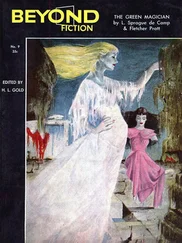Our school’s jam factory is in the grounds of the church in the cantonment area, but St Hilda’s itself is in one of the back lanes of the bazaar and I walked there almost every day of the week for staff meetings and the classes I still took for the very young children. When I went in through the gates one morning soon after the hotel manager’s party, I found Miss Wilson in heated discussion with two young men who had parked their cars within the school compound.
“It’s not safe for the children, this is their playground,” she was saying in her strident voice. “You, Deepak Bisht, you were a student here, you should have more sense than to park in a school playground.”
“Only till the elections, Agnes Mam,” the man called Deepak said in a tone half playful, half pleading. The elections were still some months away, but this time, because there was a contender from Ranikhet, campaigning had begun early. “Please, Mam, there’s no space on the road,” he said. He gestured outward as if to point to the obviousness of it. A bus and a jeep that had come from opposite ends were at that moment conclusively stuck side by side, paring each other’s paint off if either of them attempted the smallest movement. Behind them, on both sides, for as far as we could see, the narrow road was a choked cacophony of cars, motorbikes, scooters and trucks, honking and beeping to hurry things up although it was clear that nothing of the sort was possible. The air was sooty with diesel fumes.
“What is all this ‘please, please’, Deepak?” the other man said, shouting above the noise. “We have to park these cars, and that’s the end of it. She can’t do anything to stop us.”
“Today there are two cars, tomorrow there will be twenty, and how will I stop them?” Miss Wilson wiped her face with a folded hanky and tucked it back in to her waist. She shook her head. “Take them away, take them away now,” she said, gesturing me to come with her and not interfere. She began to walk off before the argument went further along its futile path. She appeared afraid and aggressive at the same time. She knew she would not get her way. Like all of us, she was wary of the anarchic power of party workers in the middle of a campaign, when our small town, where everyone knew everyone at least by sight, was invaded by outsiders with microphones and motorbikes. In Bihar, we had read in the papers, small-time political goons commandeered any vehicle they fancied and did not return your car or scooter until the elections were over or the car ruined.
The other man slapped Deepak on the shoulder. “Sisterfucker,” he said amiably, “you’ve never told us you went to a Christian school. We should throw you out of the Party.” He laughed. “You’re a guy to be watched. We never know with you, the direction of the wind changes your colour from saffron to green.”
Miss Wilson’s back stiffened and she stopped in her tracks. I turned back to the men and said, “Half your Party’s from schools just like these. What’s your problem?” Hypocrites, I muttered, loud enough for them to hear. My heart thudded and my breath grew short. I never picked fights. I did not know what had got into me.
The laughing man turned towards me with an expression of mock amazement. When he spoke, his voice was lazy and salacious. “Madam, why are you getting into something that shouldn’t bother you? You’re not even one of them.”
I began to sweat despite the cold. My hands had gone clammy. I could see my face in his reflecting sunglasses, distorted, small, windblown, scowling. Defenceless.
Deepak gave me an apologetic look and tried to propel the other man away. He patted his companion’s shoulder and said, “Let’s go, we’re late. We have all those banners to put up.” The other man turned to go, but flung a last look in my direction, growling, “They’re schoolteachers, they’re women. So I’m letting them be. No son of a … picks a fight with me.”
Miss Wilson, who had been standing a few feet away, shook her cane at some blue and white uniforms she spotted in the grounds and shouted, “Inside, inside , children! There are cars here now, you can’t play! And you, Maya, ring the bell, the chowkidar has forgotten and it’s past nine o’clock. What’s wrong with all you people?”
* * *
All through my childhood, I was my father’s pet. He had put aside his disappointment at not fathering a son, and had begun to take perverse pride in me, his only child, the girl who won all the prizes in school, his bright-eyed, adoring devotee. When he came back from work, mine was the name he called from the door, and despite his bad right leg, he scooped me up and swung me in the air when I was little enough, saying, “Now tell me, my Princess, which giants have you killed today?” When I was a little older, I went with him on his rounds of our factories and once, when I was no more than seven years old, he pulled me out of the chalk grid of a hopscotch game and introduced me to some visiting grown-ups with a flourish: “Meet the Princess of Begumpet Pickles! One day she will become the first female industrial magnate of this country.” He spoke to me only in English because he considered it the language of success, even though this excluded my Telugu-speaking mother from our conversations. From infancy, I was made to understand I was the heir. Once when my mother protested, “She will be married, she won’t be your daughter any more, she’ll have her own life and she may want other things,” my father snapped at her. “She’ll live here and run the business, and I’ll arrange a husband for her who lives with us. Why am I earning all this money if not for my grandsons?”
He continued the practice of calling for me until well into my teenage years — his car would stop, I would hear his step on the staircase and then hear my name. I would put aside whatever I was doing and run to the front door to open it and hand him his glass of fresh coconut water. It was only during my senior school years, when extra classes began to keep me away from home, that this routine began to be disrupted. Finally it ceased altogether.
I can see now that my father sensed even then that he was losing me, and everything he did was an attempt somehow to corral me, to reclaim our lost days of easy happiness when I was a willing disciple and he my unquestioned master. He insisted that I spend hours with him on the factory’s accounts after school. Holidays were to be spent going to work with him and learning on the job. “Nothing like learning on the job,” he would repeat, tapping his silver-headed stick on the floor. “Get your head out of the clouds, Maya, life is not lived on a cloud.” Twice, when I was still a pig-tailed teenager, he made me sit behind his big shining work desk — I needed a cushion to reach the right commanding height — summon a wretched employee, and inform the man that he was being sacked. If I knew something of this kind was in the offing and tried to hide from him, he forced me out of the house and into his car. “You don’t become a businesswoman unless you learn to be tough, you have to be steel inside,” he would say. On the drive, he would lecture me all the way: “Business is all about decisions that are taken in the larger interest, with a long-term plan. That man you sacked was serving no purpose any more. His salary was a waste of our money. It had to be done. Do you think I like sacking people? See this as your management degree, Maya. This is teaching you more than any business academy.”
After these encounters, I would retreat to a corner of our orchard, where, under a chikoo tree, a stray dog twice had puppies. I brought food for the bitch, milk for the puppies, and sat with them for long hours, letting the puppies nip my hands, feeling myself restored limb by limb, muscle by muscle, by their bemused joy over a dead leaf or a mound of soft earth they could dig.
Читать дальше












